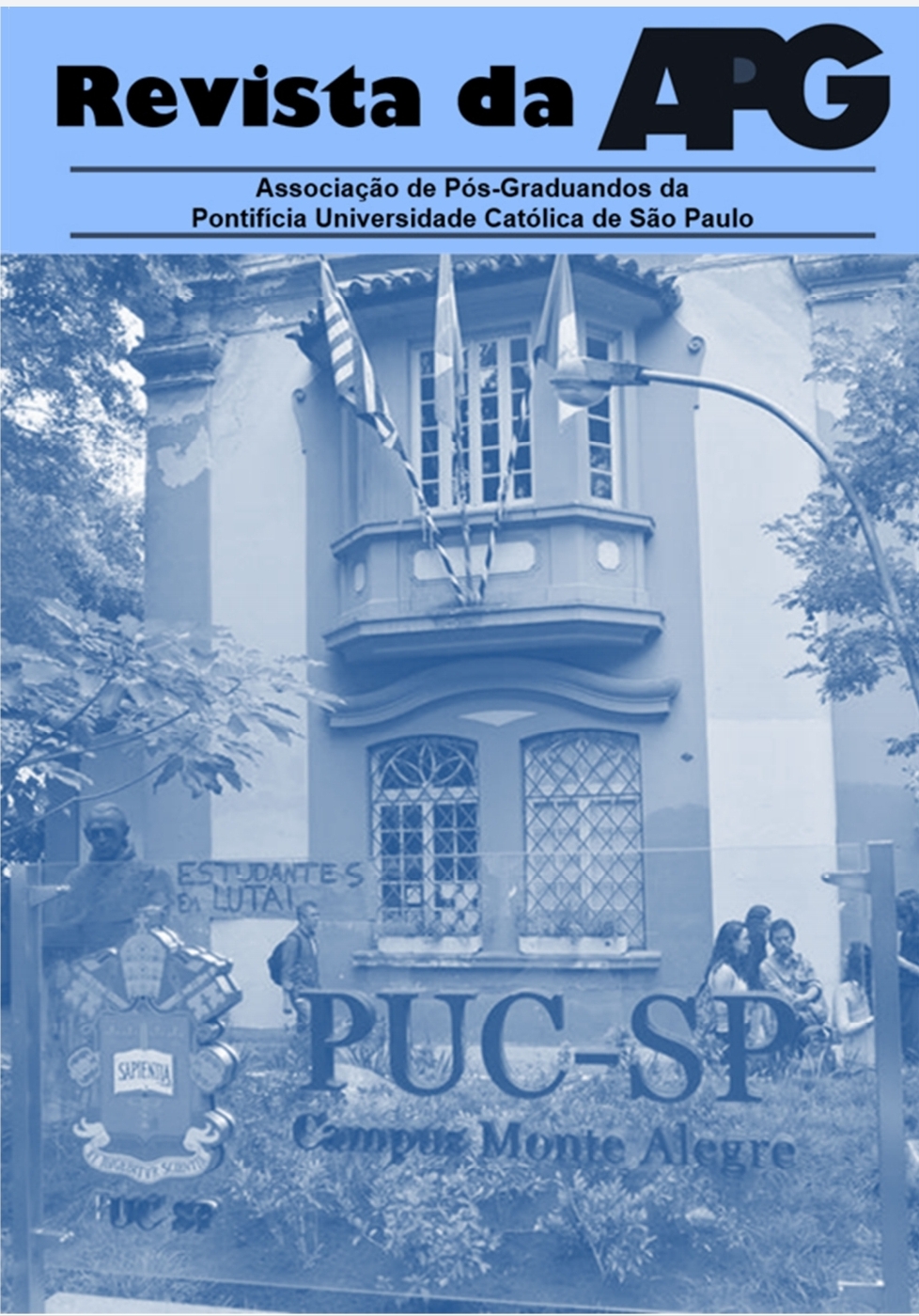Selection Processes for Popular Courses: CARDUME's experience in the face of the pandemic
DOI:
https://doi.org/10.23925/2764-8389.2022v2i1p93-116Keywords:
Education; Popular courses; Selection process; COVID-19.Abstract
The term social equity means recognizing the existence of different degrees of vulnerability and need, in order to treat unequal conditions to the extent of their inequality. However, pursuing social equity and at the same time selecting students remains a task that is both ungrateful and necessary for most popular pre-college courses, given their limited service capabilities. This article presents reflections on the selection of students carried out by the Cursinho Popular Cardume at two different times: the first carried out before the COVID-19 pandemic, in 2020, and the second carried out during this period of health crisis, in 2021. Pautou through bibliographic and documentary research with quantitative and qualitative analysis. As a result, it was understood that the pandemic influenced the reordering of the selection instruments of the aforementioned popular prep course in this territory in the face of the emergency situation, consolidating a technical and historical baggage of the space to ensure the continuity of the offer of the pre-university course for the public. which, as a result, enabled changes in the profile of the candidates.
References
BARBOSA, M. L. de O. Destinos, Escolhas e Democratização do Ensino Superior. Política & Sociedade, Florianópolis, v. 14, n. 31, p. 252-282, 2015. Disponível em: https://periodicos.ufsc.br/index.php/politica/article/view/2175-7984.2015v14n31p256/31533. Acesso em: 3 jun. 2021.
BRASIL. Decreto n° 7.234, de 19 de julho de 2010. Dispõe sobre o Programa Nacional de Assistência Estudantil — PNAES. Disponível em: http://www.planalto.gov.br/ccivil_03/_ato2007-2010/2010/decreto/d7234.htm. Acesso em: 28 abr. 2020.
BRASIL. Lei nº LEI Nº 8.069, de 13 de julho de 1990. Dispõe sobre o Estatuto da Criança e do Adolescente e dá outras providências. [S. l.]. Disponível em: http://www.planalto.gov.br/ccivil_03/leis/l8069.htm#:~:text=Art.%202º%20Considera-se%20criança,e%20um%20anos%20de%20idade. Acesso em: 3 jun. 2021.
BRASIL. Lei nº LEI N° 10.741, de 1 de outubro de 2003. Dispõe sobre o Estatuto do Idoso e dá outras providências. [S. l.]. Disponível em: http://www.planalto.gov.br/ccivil_03/leis/2003/l10.741.htm#:~:text=1o%20É%20instituído%20o,a%2060%20(sessenta)%20anos. Acesso em: 3 jun. 2021.
CARVALHO, J. A. B. A escrita na escola: uma visão integradora. Revista Interacções, [S. l.], p. 186 - 206, 12 jan. 2014.
CUTTER. S. L. A ciência da vulnerabilidade: modelos, métodos e indicadores. Revista Crítica de Ciências Sociais, 93 | 2011, 59-69.
FARIAS, H. S. de. O avanço da Covid-19 e o isolamento social como estratégia para redução da vulnerabilidade. Revista brasileira de geografia econômica, [s. l.], n. 17, 2020. Disponível em: https://journals.openedition.org/espacoeconomia/11357. Acesso em: 3 jun. 2021.
FIORATI, R. C.; ELUI, V. M. C. Determinantes sociais da saúde, iniquidades e inclusão social entre pessoas com deficiência. Revista Latino-Americana de Enfermagem, [s. l.], 2015. Disponível em: https://www.scielo.br/j/rlae/a/5Cwc8m6hZnTpgprPFHHXgyJ/?lang=pt#B13. Acesso em: 3 jun. 2021.
MADUREIRA, A. F. do A. Gênero, sexualidade e diversidade na escola: a construção de uma cultura democrática. 2007. 429 f. Tese (Doutorado em Psicologia)-Universidade de Brasília, Brasília, 2007. Disponível em https://repositorio.unb.br/handle/10482/1610. Acesso em 15/04/2020.
NUNES, G. H. L. Autodeclarações e comissões: responsabilidade procedimental dos/as gestores/as de ações afirmativas. In: DIAS, G. R. M.; TAVARES JUNIOR, P. R. F. Heteroidentificação e cotas raciais: dúvidas, metodologias e procedimentos. 1. ed. Canoas, RS.: IFRS campus Canoas, 2018. cap. 1, p. 11-30. ISBN 978-85-69075-03-5. Disponível em: http://sitio2.com.br/sites/etnicoracial/publicado/chave01/. Acesso em: 3 jun. 2021.
OSÓRIO, R. G. A desigualdade racial de renda no Brasil: 1976-2006. 2010. Tese (Doutorado em Sociologia) - Universidade de Brasília, Brasília, 2009. Disponível em: https://repositorio.unb.br/handle/10482/4274. Acesso em: 3 jun. 2021.
PAURA, S. G. O Serviço Social na Educação Superior. In: Serviço Social e Educação. Larissa Dahmer Pereira, Ney Luiz Teixeira de Almeida (organizadores). 2ª edição. Rio de Janeiro: Lumen Juris, 2013.
PAVÃO, A. P. A. R.; GRACIANO, M. I. G. BLATTNER, S. H. B. Os indicadores do estudo sócio econômico na construção do relatório social no Hospital de Reabilitação de Anomalias Craniofaciais. Serviço Social & Saúde, Campinas, v. 5, n. 5, p.183-216, maio de 2006.
PEREIRA, T. I.; RAIZER, L.; MEIRELLES, M. A luta pela democratização do acesso ao ensino superior:: o caso dos cursinhos populares. Revista Espaço Pedagógico, [s. l.], v. 17, n. 1, 2010. Disponível em: http://seer.upf.br/index.php/rep/article/view/2029/1262. Acesso em: 3 jun. 2021.
PEZZI, A. C. Cursinhos – um rito de passagem. In: ANDRADE, R. M. T.; FONSECA, E. F. (Org.). Aprovados! Cursinho pré-vestibular e população negra. São Paulo: Selo Negro Edições, 2002
TASSIGNY, M.; LUZ, L. M. E. D. Possibilidades de (in) constitucionalidade da implementação de cotas transgeneros no ensino superior brasileiro: O caso da universidade estadual da Bahia. Revista Direitos Sociais e Políticas Públicas, [S. l.], v. 7, n. 3, p. 225-252, 13 jun. 2019.
UNIVERSIDADE FEDERAL DE SÃO PAULO. Cursinho Popular CARDUME - Processo Seletivo. [2020] Disponível em: https://www.unifesp.br/campus/san7/resultados-cardume Acesso em: 3 jun. 2021.
Downloads
Published
Versions
- 2023-03-01 (3)
- 2023-02-28 (2)
- 2023-02-28 (1)
How to Cite
License
Copyright (c) 2022 Revista da APG

This work is licensed under a Creative Commons Attribution-NonCommercial-NoDerivatives 4.0 International License.



